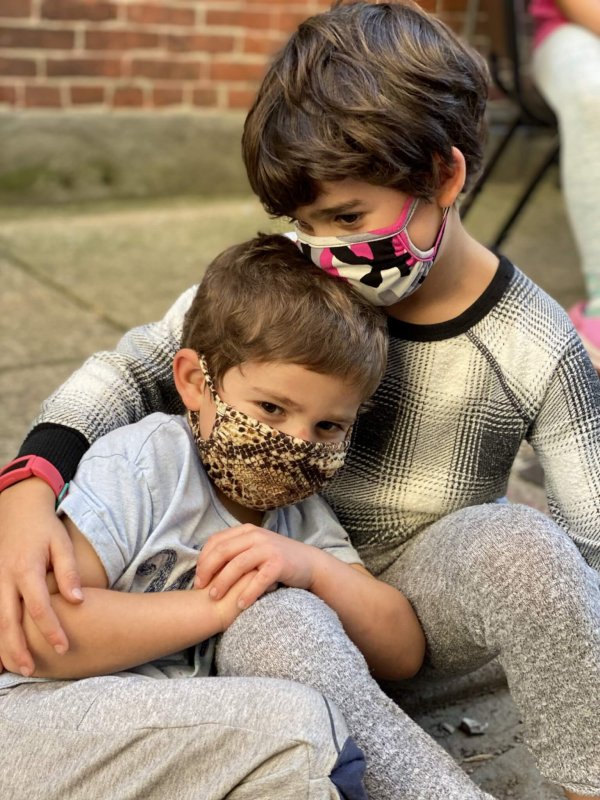
This past summer, as we rejoined each other in person and began reaching out to our community, we realized that quite a few of our families wanted to participate but were not ready to return in person. In response, we launched Makom at Home, a fully online version of our Jewish Enrichment program. Students from coast to coast gather virtually Tuesday, Wednesday, and Thursday for projects, text study, and Tefillah: Prayer, Music, and Movement. We have two cohorts, one aged 3-6 and one aged 6-9, led by rockstar teachers Isabella and David, respectively.
Makom at Home was a new challenge for David. Having joined the Makom Community team back in August and noticed our dedication and creativity he was worried about making this virtual group “feel like Makom Community.” How would he manage to foster the connections that kiddos needed while still getting in some fun and exciting learning?
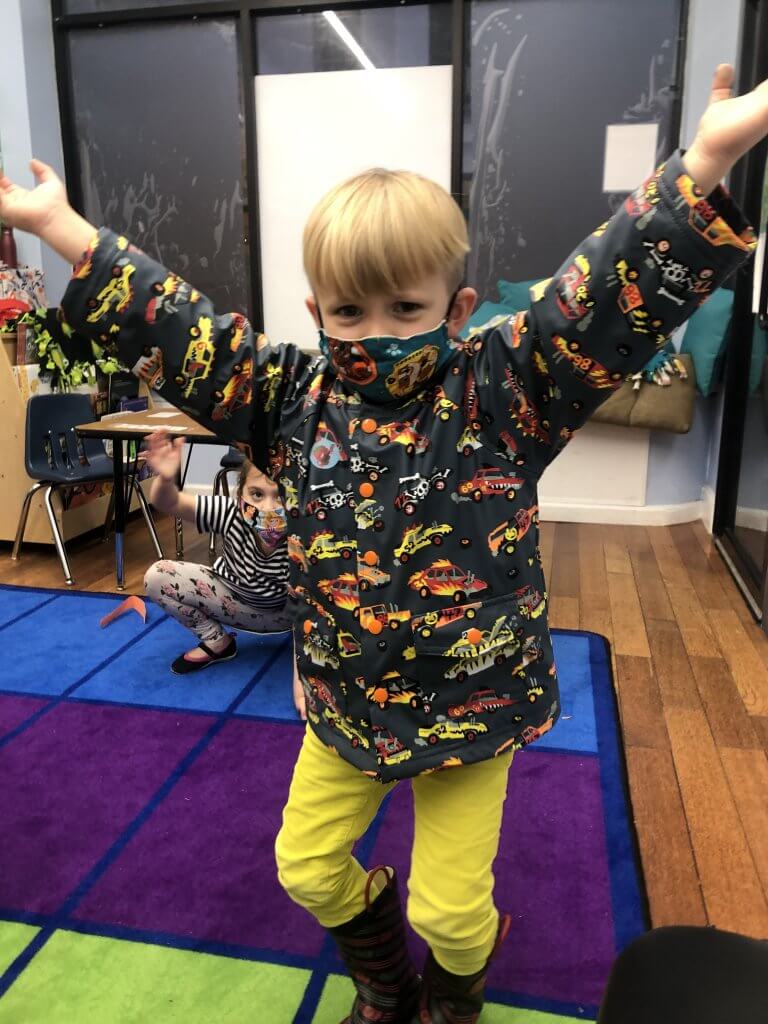
That piece, fostering connections, has been a highlight for Isabella. She’s loved watching her kiddos become more familiar with each other. One student all the way from California shared how she had been learning to ride a bike, and another student right here in Philadelphia chimed in that they had also been learning. Their ability to form connections over such a distance has been pretty impressive!
When planning for his first Makom at Home meeting, David remembered a catchphrase he’s heard often at Makom Community: “Torah always connects our lives.” So he went hunting through our first unit curriculum text for a good bit of Torah to welcome the new Makom at Home students with.
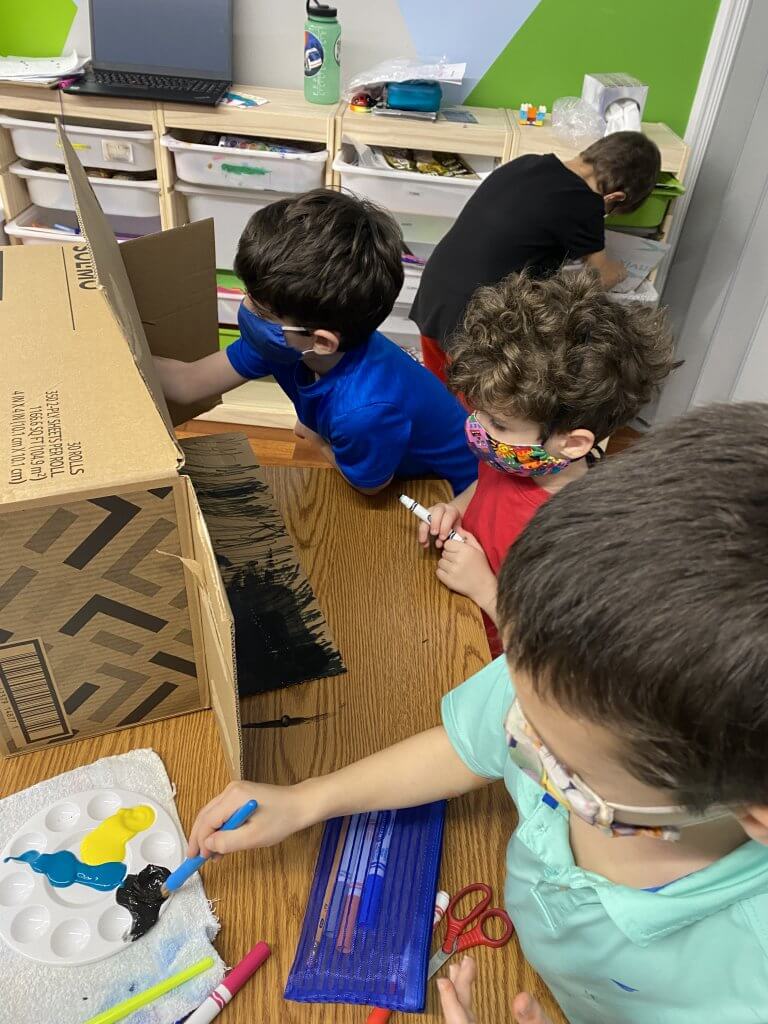
David finally settled on the descriptions from the scouts when they first ventured into Canaan. Upon their return, the majority of the scouts spread seeds of doubt. Ten of them say the land is a real fright – giants and terrible cities – and Bnei Yisrael (the Jewish people) freak out a little bit. But two scouts come back with wonderful news, that the land is rich and lovely, “flowing with milk and honey.” David asked his students to use the story as a jumping off point to imagine what it means to create a holy land in one’s mind, what it means to visualize a lovely place, and furthermore what it means when a place looks bad at first but how our perspective shifts what we see.
Everyone took out a piece of paper and something to draw with. “Let’s take a moment to design our own holy lands. Let’s focus on what it is, where it is, and who will be there with us.” Without a single hesitation from anyone, the kiddos began to draw. Every student knew exactly what they wanted to see. Kids are amazing like that.
- My family is in my promised land.
- I would want a place where all my friends can be together.
- I think it’s important when people are together and can have fun in the same place.
- There’s a lot of books in my promised land.
- I would need a waterslide.
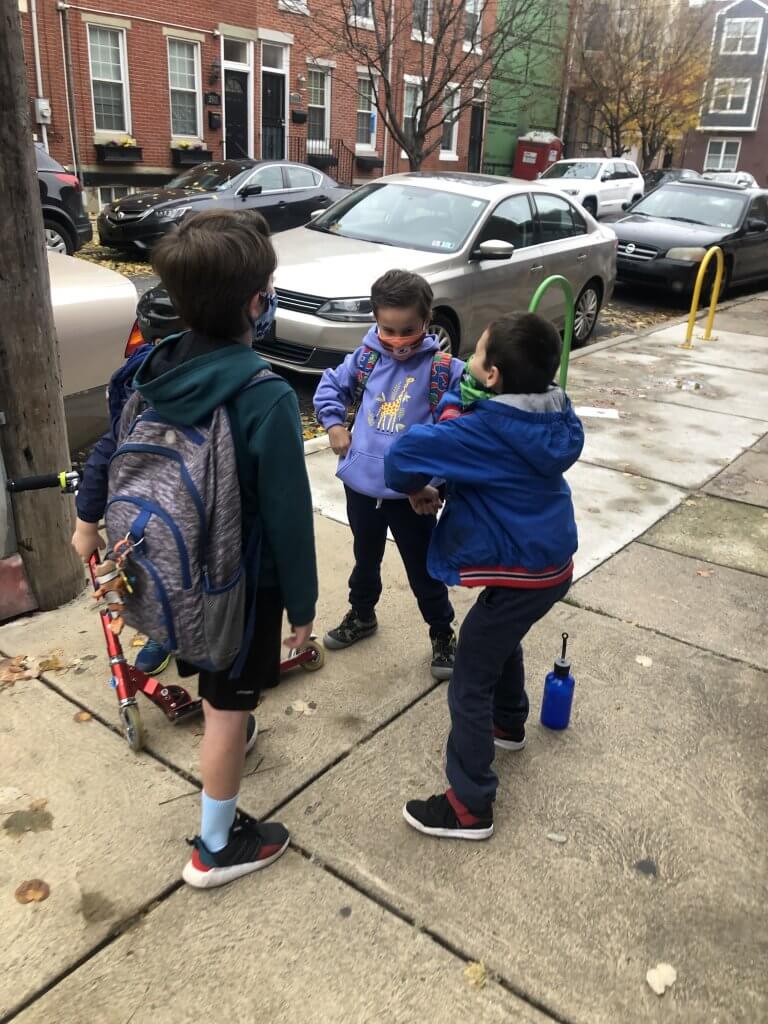
While online learning does not allow for certain educational methods, it open’s up others that aren’t necessarily accessible in person! A frequent activity that Isabella’s class enjoys both in person and online is “X’s Face When….” She will give a prompt like…
- Show me God’s face when the scouts spread lies about Canaan
- Show be Moshe’s face when he sees that Miriam is afflicted with Tzaraat (white scales on her skin)
- Show me Bnei Yisrael’s faces when God says that they must wander in the wilderness for forty years!
… and kids have to show how that character is feeling with their faces and bodies, in order to increase understanding and truly internalize the feelings and motivations of characters in the story. While some kids jump up and embody the feeling, others have taken advantage of the Zoomspace and opted instead to send emojis in the chat. They might send multiple in one message, ten angry emojis at once to express a particularly angry feeling. Independent of a game, kids can choose to communicate their daily check in or feelings at any given moment via emoji. They can express their current state to the rest of the class without a public announcement.
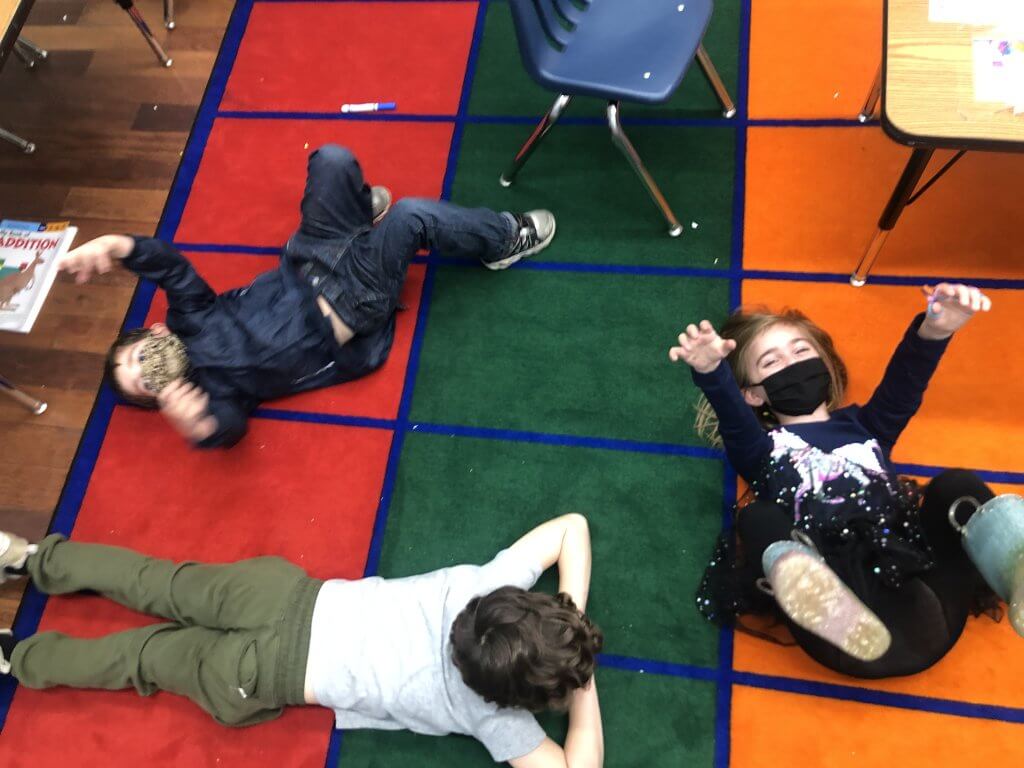
Disconnectedness is everywhere these days, but there’s something about Makom Community that fosters connection, and it’s not just between kids and teachers, or kids and kids, it’s all of us and Torah as well. Several days a week, David and Isabella get their laptops set up, get their headphones on, and jump into their virtual classes. They welcome their students, check in, and then jump right into the text. The connection sparks right back up and from their excited energy as teachers and learners.
David took his kiddo’s lovely dreams filled waterslides, zoos, 24 hour sandwich shops, and more and connected back into that feeling – the feeling of all of us being in a classroom again, at least in a little way. We used our creativity and close reading skills and had a good time doing it. It showed David the magic of Makom Community and what it means to teach in a place like this – where kids feel empowered to speak up and ask big questions. We hope for all of us that was a little slice of promised land.
